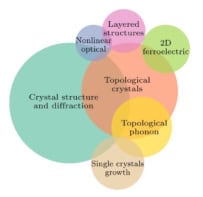Nanomaterials with advanced functional properties can enable unconventional transistor architectures and devices that exceed the sensitivity of the human skin, as Wenzhuo Wu told Physics World at innoLAE 2018 in Cambridge, UK. He described the piezotronic transistor – first introduced by Zhong Lin Wang at Georgia Institute of Technology in 2007 – and some of the research on nanowire arrays and 2D materials currently underway at his lab in Purdue University. He also highlighted the importance of work to manufacture and integrate materials into functioning devices, as well as analysis of new functional materials.
About Wenzhuo Wu
Wenzhuo Wu is assistant professor of industrial engineering at Purdue University in the US. He graduated in electronic science and technology at the University of Science and Technology of China in 2005 and received a Master’s in electrical engineering at the National University of Singapore in 2008. He completed his PhD in Zhong Lin Wang’s lab at Georgia Institute of Technology in 2013, and stayed to pursue a postdoctoral fellowship until 2015 before moving to Purdue University. He worked on the smart skin device discussed in the video during his PhD at Georgia Tech. His research interests include nanomanufacturing, self-powered nanosystems, renewable energy, human-integrated technologies and smart sensors and electronics.



